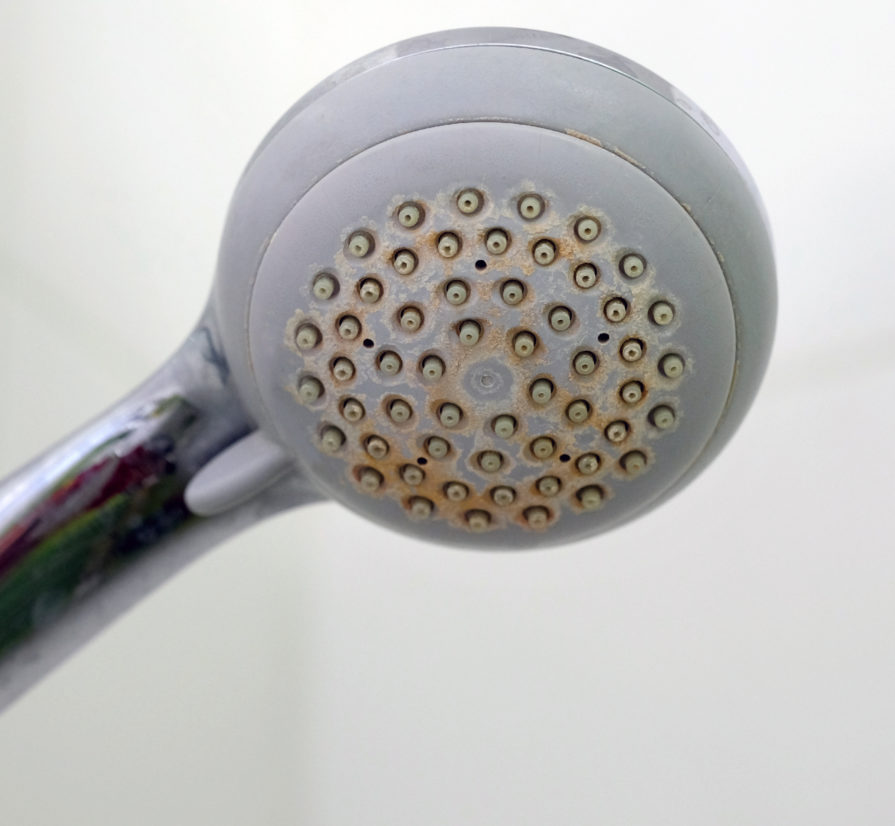
Our skin is the first layer of protection against the outside world to keep all of our internal organs functioning normally without the threat of infection. When the water we use to wash our hands, take showers in and anything in between is too hard and starts to break down that important barrier, something needs to be done to improve quality of life. But what is “hard” water and what can be done to solve it?
What is Hard Water Exactly?
Hard water is a term used to describe the water that the public receives from the municipal, or city, supply. This water has higher levels than normal of minerals and sediments, making it rougher and heavier. This means it is more abrasive when it comes into contact with anything else.
Hard water isn’t dangerous, but it can lead to soapy residues on dishes, poor tasting water, oily hair, dry and irritated skin, and many more problems down the line. For those living in the central states and on the east coast, hard water is the most concentrated in the number of minerals and sediments per square kilometer. This translates to these areas needing to invest in ways to combat and improve your water’s softness because there is a higher density of sediments within it.
What Causes Hard Water?
Those who live in areas with more minerals in the soil or where there are high concentrations of mineral-rich rocks will have harder water. When rain occurs, it runs over these rocks and slowly erodes the minerals out of the rocks and takes the minerals with it. This runoff erosion then goes into the soil, making it mineral-rich, which flows into the municipal water plant to be cleaned and sent out for city usage.
The water cycle works together with the high levels of chemistry within the ground to make the water harder, meaning that there is no true “getting rid of” hard water. Something to keep in mind is that hard water can result in mineral buildup in your plumbing, water fixtures, and water heaters, causing large repair bills and more work for you to fix every few years. Homeowners that know the mineral density of their water should invest in preventative methods as soon as possible to lower the risk of mineral buildup in their home.
How Do I Prevent Hard Water?
Water Softeners
Because there is no way to stop the minerals and sediments from existing in your water, the best way to prevent hard water from power washing your skin is to invest in water softeners. Water softeners work through a process called regeneration, where resin beads (or salt) are added to your water tank. These salt ions then change places with the mineral ions in a chemical reaction, resulting in softer water coming come out of your faucet.
At Mr. Plumber, we offer water softener installation to ease the cycle of hard water making your skin dry and uncomfortable. Additionally, our team offers maintenance on your water softener to ensure that the water your family is receiving is soft and clean for years to come.
Other Preventative Methods
There are other ways to make the water feel less like sandpaper when coming into contact with your skin other than a water softener. Using fragrance-free soaps and those marked for “sensitive skin” will help protect the outermost barrier on your skin, as well as using a rich moisturizing lotion or body butter to encourage moisture to stay within your skin.
Taking shorter and warmer showers will help the water be more gentle on your skin as you wash because you are in contact with it for a shorter amount of time – but remember that the temperature shouldn’t be in either of the extremes, as it can cause more harm than good.
For more information on if you should get a water softener for your home, contact Mr. Plumber Plumbing Co. for softer and easier drinking water today.

